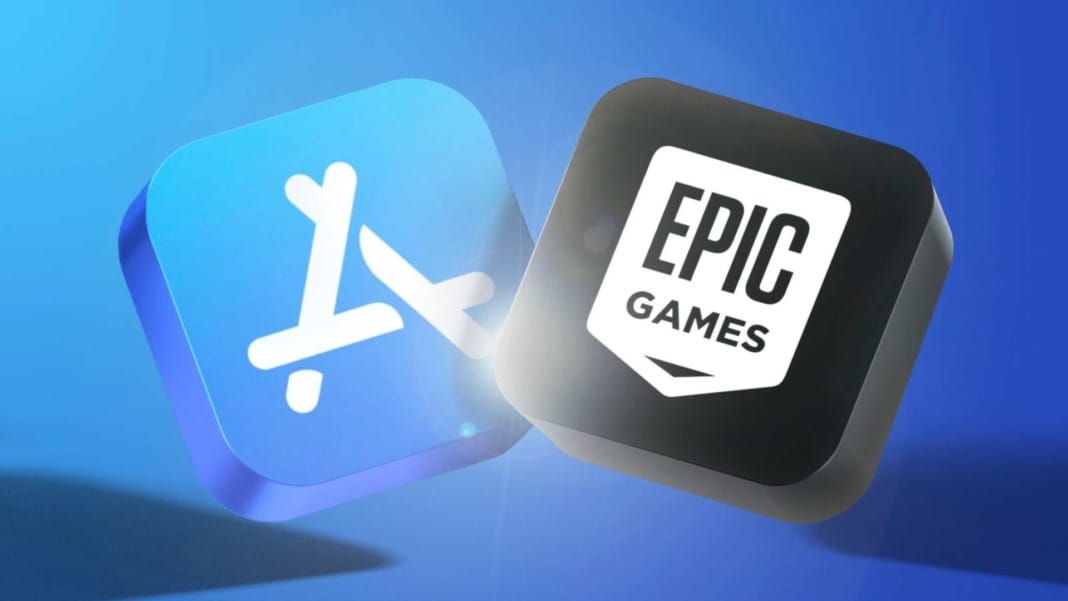In 2020, Epic Games initiated legal action against Apple for alleged antitrust violations. Although the trial concluded years ago and a verdict was rendered, recent weeks have witnessed a return to the courtroom for both Apple and Epic Games. This time, the outcome is far from certain, with the potential for a different outcome than the initial trial.
The beginning of the battle
The seeds of the conflict were sown when Epic Games challenged Apple’s 30 per cent fees on in-app purchases. Epic’s audacious move to introduce its own payment system within Fortnite led to the game’s removal from the App Store, sparking a legal battle with Apple.
Judge Gonzalez Rogers ruled that Epic breached its contract and ordered the company to pay Apple 30 per cent of the revenue made through its alternative payment system, amounting to about $3.5 million.
Despite Apple winning on most points, Gonzalez Rogers also ordered Apple to allow developers to use alternative payment systems for in-app purchases. After the Supreme Court refused to hear appeals from both companies earlier this year, Apple was required to implement this change.
However, Apple introduced its solution in its own way. Developers could link to external payment methods to avoid Apple’s up-to-30 per cent cut, but Apple’s system included a new commission of up to 27 per cent. Epic’s CEO, Tim Sweeney, labelled Apple’s move as “bad-faith” compliance. Epic contested Apple’s compliance plan, leading to more court hearings in recent weeks.
Courtroom drama
During these hearings, lawyers from both sides have interrogated witnesses, including Apple employees and external experts, about Apple’s decisions in the compliance plan and how they believed it adhered to the court order.
Judge Gonzalez Rogers, a pivotal figure in this legal saga, has posed several pointed questions to Apple. Her insightful queries, such as questioning the necessity of Apple’s button styles for external payment links, suggest a keen understanding of the case and its potential implications.
On May 16, she seemed particularly frustrated with Carson Oliver, Apple’s senior director for business management for the App Store. Epic’s lawyer, Yonatan Even, questioned Oliver on whether he understood that the court’s concern was about anti-steering rules preventing communication of lower prices outside of the app, which hindered competition. Oliver’s responses did not satisfy the judge, who questioned his understanding of the court’s intent to increase competition.
Throughout the proceedings, Oliver described an analysis by an outside consultancy group, but the judge doubted its value to individual developers. Apple’s model seemed to have one group of developers subsidizing others.
Phil Schiller on the stand
Phil Schiller, an Apple Fellow responsible for the App Store, also testified. The judge took issue with Apple’s compliance plan that collects a commission from apps that install an “External Purchase Link” within the first seven days after a user taps the link. Schiller explained that this period balanced Apple’s entitlement to a commission with the indirect connection of an in-app purchase to the App Store over time.
During questioning, Schiller revealed that only 38 apps had applied to use external payment links out of 135,000 apps with in-app purchases on the App Store. Epic’s lawyer, Gary Bornstein, argued that the number of potential applicants should include apps not yet offering in-app purchases or apps not yet on the store. Schiller conceded that this might be a valid perspective.
Epic reminded the court that it could seek sanctions if it believed Apple had violated the original order. The evidentiary hearing is ongoing, with more sessions scheduled.
The outcome of this protracted legal battle, which has far-reaching implications for both companies and the broader tech industry, is yet to be determined. Judge Gonzalez Rogers’s final ruling could potentially reshape the tech industry, making this a case of the utmost importance.





